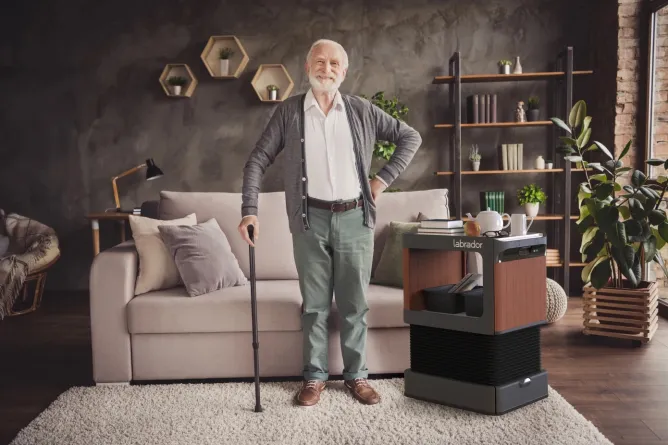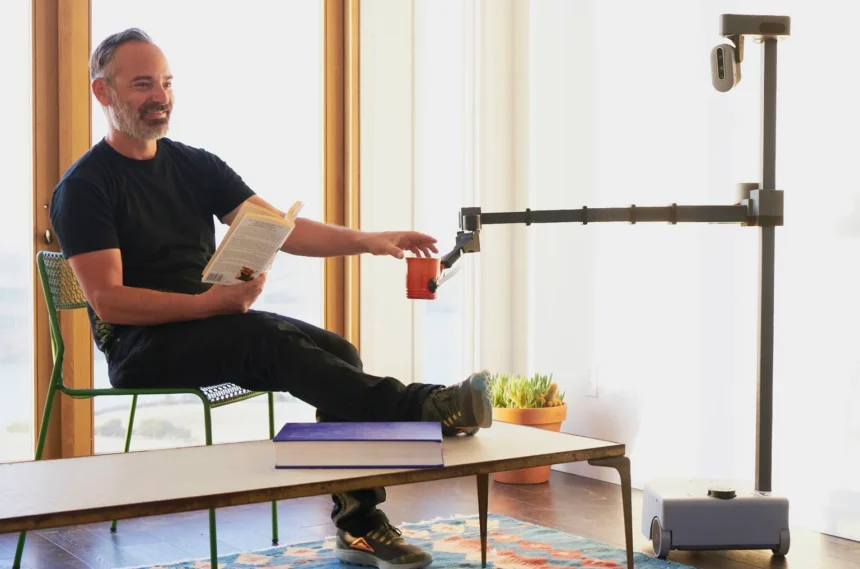For decades, the dream of automated housework has been a futuristic vision, often romanticized by pop culture icons like The Jetsons’ Rosie the Robot Maid. However, despite the rapid advancement of AI and robotics, household robots beyond the humble robotic vacuum have yet to achieve mainstream adoption. Meta is looking to change that narrative with the launch of its new research initiative, PARTNR.
Introducing PARTNR: Meta’s Vision for Human-Robot Collaboration
On Friday, Meta unveiled PARTNR, a cutting-edge program dedicated to studying human-robot interaction (HRI). This ambitious initiative seeks to explore how humans and robots can effectively collaborate within home environments, tackling everyday tasks such as cleaning, cooking, and managing deliveries. Rather than aiming for fully autonomous home assistants, Meta is focused on developing systems that work alongside humans, enhancing efficiency and reducing the burden of household chores.
The reality is that no single household robot has yet achieved the perfect balance of affordability, functionality, and reliability. While robotic vacuums have found their place in many homes, more complex domestic tasks require significant advancements in AI-driven collaboration. Meta’s PARTNR aims to bridge that gap by creating a benchmark and dataset to train and evaluate robotic systems in real-world environments.
The Challenge of Bringing Robots into the Home
Despite the continuous progress in robotics, the widespread adoption of household robots has remained elusive. Several challenges have prevented robots from becoming common household fixtures:
- Cost: Advanced robotic systems remain prohibitively expensive for most consumers.
- Reliability: Many robots struggle to perform complex or unpredictable tasks with human-level dexterity.
- Functionality: Most current home robots are designed for single-purpose tasks rather than multi-functional assistance.
Meta recognizes that the key to unlocking a new era of home robotics lies in improving collaboration between humans and machines. PARTNR is designed to lay the foundation for this future by enabling robots to better understand and work alongside people, rather than replacing them outright.
PARTNR’s Approach: A Data-Driven Future for Robotics
At the core of PARTNR is an extensive benchmark of 100,000 tasks that simulate real-world household activities, including cleaning up dishes, organizing toys, and other domestic chores. The program also introduces a robust dataset featuring human demonstrations of these tasks in simulated environments. This data will be crucial for training embodied AI models, helping them learn how to interact with objects and spaces in a way that mirrors human behavior.
Simulation has become an essential tool in robotic development, allowing researchers to rapidly test and refine AI models before deploying them in the physical world. However, Meta is taking things a step further. The company has successfully tested PARTNR beyond simulated environments, demonstrating its capabilities in real-world scenarios using Boston Dynamics’ Spot robot. Additionally, Meta has developed a mixed reality interface that visually represents the robot’s decision-making processes, providing greater transparency and control over robotic interactions.
Reimagining Robots as Partners, Not Just Tools
Meta’s vision for robotics extends beyond mere automation—it aims to redefine the relationship between humans and machines. “With PARTNR, we want to reimagine robots as future partners, not just agents, and jump-start research in this exciting field,” Meta stated. This perspective shifts the focus from autonomous robots to collaborative systems designed to complement human effort rather than replace it.
One area where this innovation could have a profound impact is age-tech. Companies like Labrador have already introduced robotic serving carts to assist elderly individuals who want to maintain independence. However, the integration of truly collaborative robots will require significant advancements in AI, user interfaces, and machine learning before these solutions become viable for everyday consumers.
The Future of Household Robots: The Role of Humanoids
A particularly intriguing development in robotics is the rise of humanoid robots. Many tech companies envision a future where bipedal robots assist with both industrial and domestic tasks. However, current humanoid robots face steep hurdles in terms of cost and reliability. As a result, manufacturers are initially focusing on commercial applications before bringing these innovations into homes.

If AI and robotics continue advancing at their current pace, we may soon see a world where humanoid robots seamlessly transition from factory floors to household chores. This transition, however, will require breakthroughs in human-robot collaboration, ensuring these machines can adapt to dynamic environments and interact naturally with people.
Final Thoughts: Meta’s PARTNR as a Stepping Stone
Meta’s investment in PARTNR marks a significant step toward realizing the long-held vision of functional household robots. By leveraging AI, simulation, and real-world testing, the initiative aims to develop robots that complement human abilities rather than replace them. While fully autonomous home assistants may still be years away, the insights gained from PARTNR will help pave the way for a future where robots become true partners in managing daily life.
As technology evolves, the dream of a robotic helping hand in every home inches closer to reality. With companies like Meta leading the charge, the next generation of home robots might finally strike the right balance between affordability, reliability, and usability—turning science fiction into everyday convenience.










